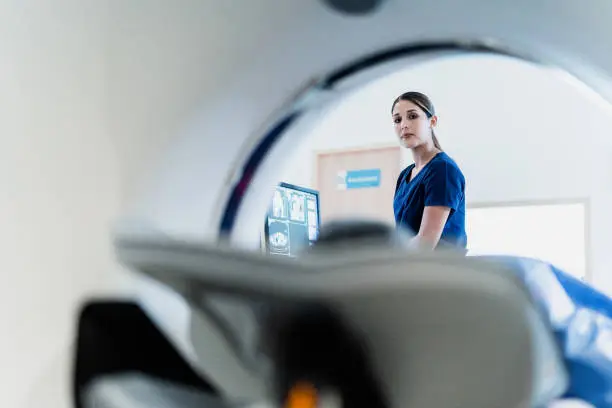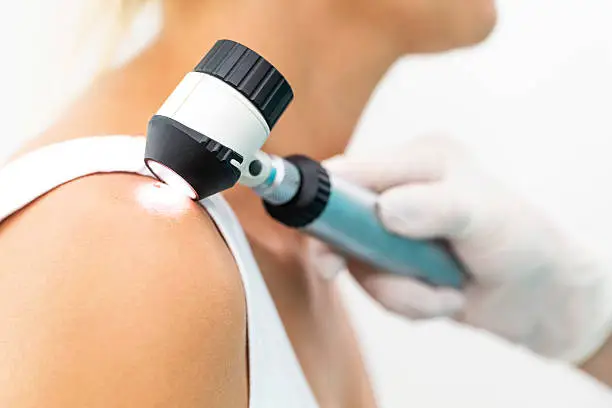An oncologist is a doctor who specializes in identifying and treating cancer patients.
An oncologist will develop a treatment plan if you have cancer based on detailed pathology reports that outline the type of cancer you have, its extent, its potential to spread, and the areas of the body affected.

You will likely encounter different types of oncologists during the course of your treatment because most cancers are treated with a cocktail of drugs.
Which kinds of oncologists were visible?
Oncologists of medicine
Medical oncologists are doctors who utilize biological medicines, hormone therapies, chemotherapy, and other treatments to combat cancer. They are the ones most people call first in a cancer situation, which often makes the medical oncologist the “go-to” doctor for someone diagnosed with cancer.
Medical oncologists support their patients through tracking their health, side effects management, and after the completion of the treatment process.
Oncologists that utilize radiation
High-energy photon beams are used by radiation oncologists to target and eliminate cancer cells. In fact, half of all cancer patients will receive radiation therapy as part of their cancer treatment.
Some tumours respond best to powerful radiation beams that are so precisely targeted that they are referred to as “radiosurgery,” while others respond best to tiny “seeds” of irradiated material implanted in the affected area.
Surgical oncologists
If your primary care physician feels that you have cancer, one of the first doctors you may see is a surgical oncologist. In order to check for cancer cells, surgical oncologists frequently do biopsies, which include removing a small portion of tissue.
You may need to see the surgical oncologist again if there are cancer cells; this time, the tumour and surrounding tissues will be removed. During cancer treatment, the surgeon will assist you in getting ready for and recovering from any surgical procedures.
Oncologists for children
The diagnosis and treatment of children suffering from cancer are handled by paediatric oncologists. A total of 175,000 children under the age of 15 are diagnosed with cancer every year worldwide. The survival rate for children with cancer who receive a cancer diagnosis and treatment in the US is about 80%.
While some paediatric oncologists focus on researching juvenile malignancies, others specialize in specific types of cancer. Most paediatric oncologists find that teaching families whose children are receiving cancer treatment is a big part of their job.
Gynaecologic cancer specialists
Although ovarian, cervical, uterine, vaginal, and vulvar cancers are among the illnesses for which gynecologic oncologists train and specialize in treating, these doctors also commonly treat challenging non-cancerous conditions in the female reproductive organs, such as endometriosis and fibroid tumours.

Gynaecologic oncologists, like other oncologists, receive extensive training over years and concentrate on cancers that specifically impact females.
Oncologist-haematologist
Haematologists are doctors who specialize in the treatment of blood cancers like leukaemia and lymphoma. They also deal with other blood disorders that are not cancerous, such as haemophilia and sickle cell anaemia.
What to expect
Your first visit to the oncologist can last two to three hours. This is because your oncologist will take some time to familiarize themselves with your health status. Besides that, you should expect:
- Emotion—or a weird absence of it. You might become anxious, angry, and depressed once you discover that you have cancer. At first, you will likely experience numb shock, too.
- A physical exam. Your oncologist will probably do a physical examination even if your primary care physician has already done one
.
- Several more tests. You may require additional imaging or blood draws.
- consultations with other members of the cancer treatment team. You may also have meetings with other medical specialists or those who can help you understand the insurance procedure and treatment cost.
- an early prognosis. An oncologist will not be surprised if they can give you a pretty good idea of how long you’ll be in treatment.
What to inquire about
It is not uncommon to have a lot of questions right up until you meet your doctor in person. Then, poof! they’re gone. A person who is typically very competent at finding the information they need to make wise decisions may even become momentarily “frozen” by the stress that comes with receiving a cancer diagnosis.
This means that it may be a good idea to write down your questions in the days before your visit using a pen and paper or a notes app on your phone.
What tests are conducted by oncologists?
Your oncologist may perform a physical examination to look for anomalies that might point to cancer. They may also conduct imaging tests such as CT, MRI, and ultrasound scans, as well as blood and urine testing. To look for cancer cells in tissues, they may do one or more biopsies.
To what extent are oncologists trained?
Internal medicine has the specialty of oncology. Doctors must complete a three-year internal medicine residency after medical school and after getting their licensure.
Medical oncologists must do a medical oncology fellowship for two to three years after their residency. Surgical oncologists must complete a general surgery residency before starting a two-year surgical oncology fellowship.
The process of becoming a radiation oncologist takes five years, which entails an internal medicine internship and radiation oncology residency.
How can one find a good oncologist?
Asking your primary care physician for recommendations is a good place to begin. To make sure which names are part of your insurance network, you may want to get several names.
Other options include finding a reputable hospital and then discovering which oncologists work there. You can use the American Cancer Society’s hospital checklist (Trusted Source) to see which local hospitals will deliver the best cancer care.
The American College of Surgeons grants accreditation to cancer facilities that comply with a rigorous set of standards through the Commission on Cancer (CoC). To find accredited cancer treatment centres near you, you can search using their hospital locator.
The bottom line.
An oncologist is a physician that treats cancer. Some of the subspecialties include: medical, surgical, radiation, paediatric, and gynaecologic oncologists.
Haematologist-oncologists are oncologists who work with blood malignancies. These physicians have received high-level, highly specialized education and training in the post-medical school residencies and fellowships in order to diagnose and treat cancer.
You should anticipate additional tests if you are sent to an oncologist. Depending on the nature of your cancer, you may possibly be treated by several kinds of cancer care specialists.

